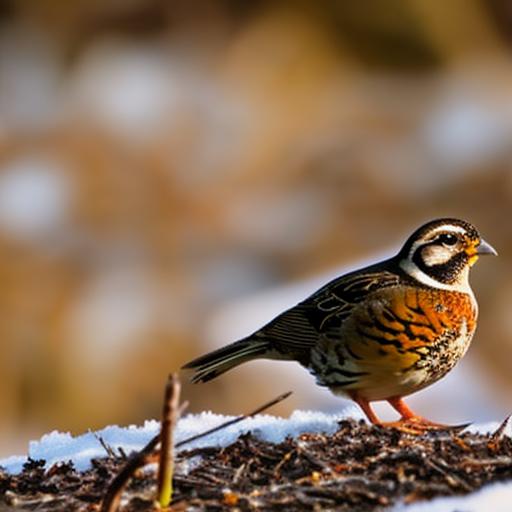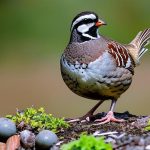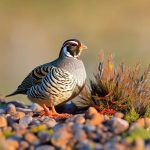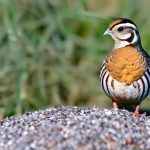Quail, like many other birds, have specific needs during the winter months. Understanding these needs is crucial for providing proper care and ensuring the well-being of quail during this challenging time. In winter, quail require shelter, warmth, food, and water to survive the harsh conditions. They also need protection from predators and access to a safe environment where they can roost and rest. Additionally, quail may experience changes in behavior and health during the winter, so it’s important to monitor them closely and make adjustments as needed to support their overall well-being.
During the winter, quail may struggle to find food and water due to snow cover and freezing temperatures. This can lead to stress, malnutrition, and dehydration, which can have serious consequences for their health. Therefore, it’s essential to provide them with the necessary resources to meet their basic needs during this challenging time. By understanding the specific needs of quail in winter, you can take proactive measures to ensure their survival and comfort during the colder months.
Key Takeaways
- Quail need protection from harsh weather conditions in winter, including cold temperatures and precipitation.
- Providing shelter with proper insulation and ventilation is crucial for quail to stay warm and dry in winter.
- Ensuring a warm and dry environment for quail in winter involves using bedding materials and regularly cleaning the shelter.
- Offering a diet high in protein and energy is essential for quail to maintain their body condition and stay healthy in winter.
- Access to clean and unfrozen water is important for quail to stay hydrated and maintain their overall health in winter.
- Monitoring quail health and behavior in winter helps to identify any issues early and provide necessary care.
- Implementing additional winter care strategies for quail may include using heat lamps, windbreaks, and providing extra food during extreme cold weather.
Providing Adequate Shelter for Quail in Winter
One of the most important aspects of caring for quail in winter is providing them with adequate shelter. Quail need a safe and secure place to roost and rest, especially during cold and inclement weather. A well-constructed shelter can protect them from harsh winds, precipitation, and extreme temperatures, helping them conserve energy and stay warm. When building a shelter for quail, it’s important to consider factors such as ventilation, insulation, and protection from predators. Additionally, the shelter should be large enough to accommodate the entire flock and provide enough space for them to move around comfortably.
There are various types of shelters that can be used for quail in winter, including wooden or metal structures, as well as natural shelters such as dense shrubs or brush piles. Whichever type of shelter you choose, it’s important to ensure that it is well-maintained and free from drafts or leaks. Providing adequate shelter for quail in winter is essential for their survival and well-being, as it helps them stay protected from the elements and reduces their stress levels during this challenging time.
Ensuring a Warm and Dry Environment for Quail in Winter
In addition to providing shelter, it’s important to ensure that the environment where quail are housed during winter is warm and dry. Cold and damp conditions can be detrimental to quail’s health, leading to issues such as frostbite, respiratory infections, and hypothermia. To prevent these problems, it’s crucial to maintain a dry and warm environment for quail throughout the winter months. This can be achieved by using bedding materials such as straw or wood shavings to insulate the floor of the shelter and absorb moisture. Additionally, providing supplemental heat sources such as heat lamps or heated perches can help maintain a comfortable temperature inside the shelter.
It’s also important to regularly check for drafts, leaks, or other sources of cold air that could compromise the warmth of the shelter. By ensuring a warm and dry environment for quail in winter, you can help them stay healthy and comfortable despite the challenging weather conditions. This proactive approach to environmental management is essential for supporting the well-being of quail during the colder months.
Offering the Right Diet for Quail in Winter
During winter, quail may have difficulty finding food due to snow cover and freezing temperatures. As a result, it’s important to provide them with a nutritious and balanced diet to support their health and well-being during this challenging time. Quail require a diet that is high in protein and energy to help them stay warm and maintain their body condition in cold weather. This can be achieved by offering them a variety of foods such as seeds, grains, insects, and commercial game bird feed.
It’s also important to ensure that quail have access to food throughout the day, as they may need to consume more calories to stay warm during the winter months. Additionally, providing supplemental sources of nutrition such as mealworms or cracked corn can help ensure that quail are getting the nutrients they need to thrive in colder temperatures. By offering the right diet for quail in winter, you can help them stay healthy and maintain their energy levels despite the challenges of finding food in snowy and icy conditions.
Providing Access to Water for Quail in Winter
Access to water is essential for quail in winter, as they need it for hydration and maintaining their overall health. However, freezing temperatures can make it difficult for quail to find water sources that are not frozen solid. To address this challenge, it’s important to provide quail with access to unfrozen water throughout the winter months. This can be achieved by using heated waterers or regularly replacing frozen water with fresh, unfrozen water several times a day.
In addition to providing access to water for drinking, it’s also important to consider other water-related needs of quail during winter. For example, quail may need water for bathing and preening, which helps them maintain their feathers and stay clean. By ensuring that quail have access to water for all of their needs during winter, you can help support their overall health and well-being despite the challenges of freezing temperatures.
Monitoring Quail Health and Behavior in Winter
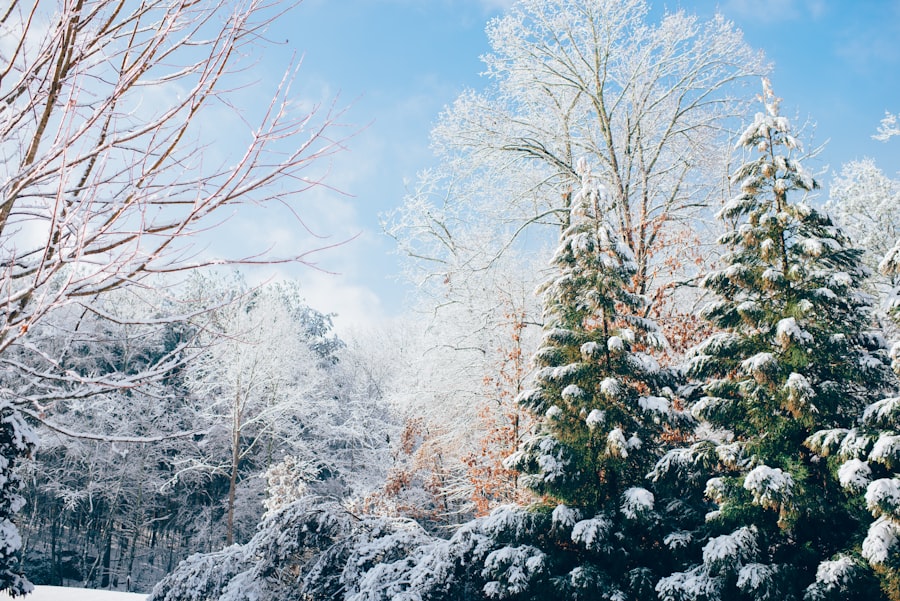
During winter, it’s important to monitor the health and behavior of quail closely to ensure that they are thriving despite the challenging conditions. Cold weather can have a significant impact on quail’s well-being, leading to issues such as stress, illness, and reduced activity levels. By regularly observing quail and noting any changes in their behavior or appearance, you can identify potential problems early on and take appropriate action to address them.
Common signs of health issues in quail during winter may include lethargy, decreased appetite, fluffed feathers, or respiratory symptoms. If you notice any of these signs, it’s important to seek veterinary care promptly to prevent further complications. Additionally, monitoring the behavior of quail can provide valuable insights into their overall well-being and help you make adjustments to their care as needed.
Implementing Additional Winter Care Strategies for Quail
In addition to providing shelter, warmth, food, and water for quail in winter, there are several additional care strategies that can help support their well-being during this challenging time. For example, providing enrichment activities such as perches or hiding spots can help keep quail active and engaged despite the limitations of cold weather. Additionally, minimizing stressors such as loud noises or sudden movements can help reduce the risk of stress-related health issues in quail during winter.
It’s also important to consider predator control measures to protect quail from potential threats during winter. This may include securing the perimeter of their enclosure with predator-proof fencing or using deterrents such as motion-activated lights or sound devices. By implementing these additional care strategies for quail in winter, you can help create a safe and supportive environment that promotes their overall well-being despite the challenges of cold weather.
In conclusion, caring for quail in winter requires a proactive approach that addresses their specific needs during this challenging time. By understanding their requirements for shelter, warmth, food, water, and monitoring their health and behavior closely, you can provide effective care that supports their well-being throughout the colder months. Implementing additional care strategies such as enrichment activities and predator control measures can further enhance the quality of life for quail during winter. With proper care and attention to their needs, quail can thrive despite the challenges of winter weather.
Looking for the best way to keep quail during the winter? Check out this informative article on PoultryWizard.com that provides valuable insights and tips on maintaining a healthy and comfortable environment for your quail during the colder months. Whether it’s adjusting their housing, providing adequate warmth, or ensuring proper nutrition, this article offers practical advice to help you keep your quail thriving throughout the winter. For more poultry-related information, you can also explore articles on how many eggs geese lay and large chicken coop ideas.
FAQs
What are the best ways to keep quail in the winter?
Quail can be kept in the winter by providing them with a warm and dry shelter, ensuring they have access to fresh water, and feeding them a balanced diet to help them stay healthy during the colder months.
How can I provide a warm and dry shelter for quail in the winter?
You can provide a warm and dry shelter for quail in the winter by using insulated housing, adding extra bedding for warmth, and ensuring the shelter is well-ventilated to prevent moisture buildup.
What should I feed quail in the winter to keep them healthy?
In the winter, it’s important to feed quail a balanced diet that includes high-protein feed, grains, and fresh greens to help them maintain their health and energy levels during the colder months.
How can I ensure quail have access to fresh water in the winter?
To ensure quail have access to fresh water in the winter, you can use heated waterers to prevent the water from freezing, and regularly check and refill the water to ensure it stays clean and accessible to the quail.
Meet Walter, the feathered-friend fanatic of Florida! Nestled in the sunshine state, Walter struts through life with his feathered companions, clucking his way to happiness. With a coop that’s fancier than a five-star hotel, he’s the Don Juan of the chicken world. When he’s not teaching his hens to do the cha-cha, you’ll find him in a heated debate with his prized rooster, Sir Clucks-a-Lot. Walter’s poultry passion is no yolk; he’s the sunny-side-up guy you never knew you needed in your flock of friends!

